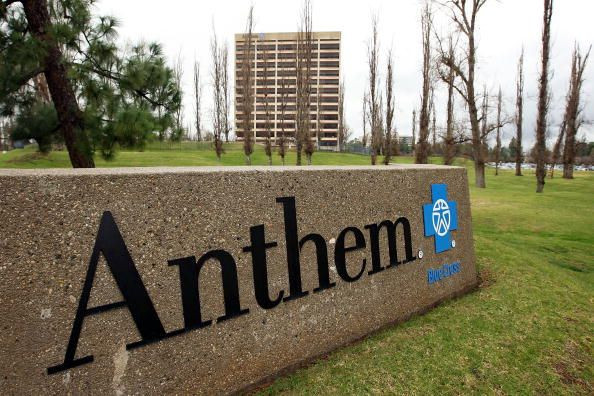Healthcare Earnings: Anthem (ANTM), Aetna (AET), Humana (HUM), Cigna (CI) Still Figuring Out How To Profit Under Obamacare

UnitedHealth Group, which made waves Tuesday when it announced it would exit most Affordable Care Act health insurance exchanges in 2017, is hardly the only company in the healthcare industry that has not yet developed a recipe for guaranteed success in an Obamacare world.
Other major insurers — Cigna, Anthem, Humana and Aetna — are in the midst of proposed mergers that have generated controversy and drawn scrutiny, even as the companies themselves say the mergers are necessary for better business and quality of care. These companies are scheduled to report earnings starting next week, and analysts expect to see top-line growth, but flat margins, as the companies continue testing new strategies to generate profit in a sector undergoing significant upheaval.
"We don't know if they're actually making money on certain segments of the business," Dustin Eggers, a principal at Decision Resources Group in Chicago, said of health insurers that are selling plans on Affordable Care Act exchanges. "It's unknown. There are a lot of issues with that population," he pointed out. If any insurer can figure out how to reliably turn a profit and engage a population that has historically turned a blind eye to healthcare, "it's a game changer," Eggers added.
Broadly speaking, the exchanges have helped insurers, said Jeffrey Loo, an equity analyst at S&P in New York. "The ACA has been a net benefit for health insurers," he said. "Membership has grown significantly for the managed healthcare industry."
In other, more specific ways, the exchanges have not helped. Profit margins for insurers have remained slim, Loo said.
“You’re going to see continued pressure on the exchange business,” said Stephen Moore, a partner at PwC. He and other observers said that figuring out how to succeed on the exchanges remains one of the biggest issues insurers have to deal with.
UnitedHealth Group (UNH) reported robust first-quarter earnings Tuesday of $1.81 per share, on revenues of $44.5 billion. But CEO Stephen Hemsley said in a call with investors that the company would exit all but "a handful" of exchanges created under the Affordable Care Act in 2017. The company has said it lost $720 million on those exchanges in 2015.
If UnitedHealth, the country's largest health insurer, is backing out of those marketplaces just three years after they were established, some in the industry are wondering how other insurers will figure out how to thrive on the exchanges, through which the White House estimates more than 12 million people bought insurance in 2016.
Anthem Agrees to Buy Cigna for $48.4 Billion http://t.co/S1MmwSMqzf #Aetna #Humana #Anthem #Cigna pic.twitter.com/y9aYbkQXDx
— Gemba Health (@GembaHealth) July 25, 2015
Aetna CEO Mark Bertolini has said the company is working with the government to improve business on Obamacare exchanges, even though he has questioned their profitability. Joseph Swedish, Anthem's CEO, has indicated the company would stick with the exchanges. But with United's exit, some analysts have suggested that both Aetna and Anthem will have to raise the price of premiums for plans they sell on the exchanges in order to ensure profitability, Reuters reported.
Amid concerns about profits, these insurers are now trying to team up to improve economies of scale and cost-efficiency. In June, Aetna said it would acquire Humana for $34 billion; the next month, Anthem, the U.S.'s second-largest insurer by revenue, announced it had agreed to buy Cigna, the country's fifth-largest, for $48.4 billion.
"Healthcare markets are constantly changing — whether as the result of legislation or the imperative to meet the needs of consumers and providers," Swedish told a congressional committee in September, according to his prepared remarks. "The goal of this transaction is to provide a better product ... that promotes affordability, increases accessibility, and enhances quality by focusing on innovation and collaboration."
Both deals still await approval from regulators, including a review by the U.S. Department of Justice's antitrust division. Analysts expect the deals to go through.
"I don’t think we’re going to see regulatory intervention to halt any of those mergers," Eggers, the DRG analyst, said.
Anthem (ANTM) is scheduled to report first-quarter earnings April 27 before markets open. Analysts' consensus is to see earnings of $3.34 per share, up from $3.09 the year before.
"They’re making a profit" on the Affordable Care Act exchanges, Loo said of Anthem.
When Hartford, Connecticut-based Aetna (AET) reports before markets open April 28, analysts expect to see $2.22 in earnings per share, barely up from $2.20 the year prior. Loo attributed this to a combination of a “stagnant membership growth rate” and an uptick in cost trends.
Louisville-based Humana Group (HUM), reporting May 4, is expected to produce earnings per share of $1.81 on $13.76 billion in revenues, down from $2.47 a year ago. When Cigna Health Group (CI), headquartered in Bloomfield, Connecticut, reports May 6, it is predicted to bring in $2.17 per share, compared to $2.04 per share a year ago on revenues of $9.47 billion.
© Copyright IBTimes 2025. All rights reserved.






















